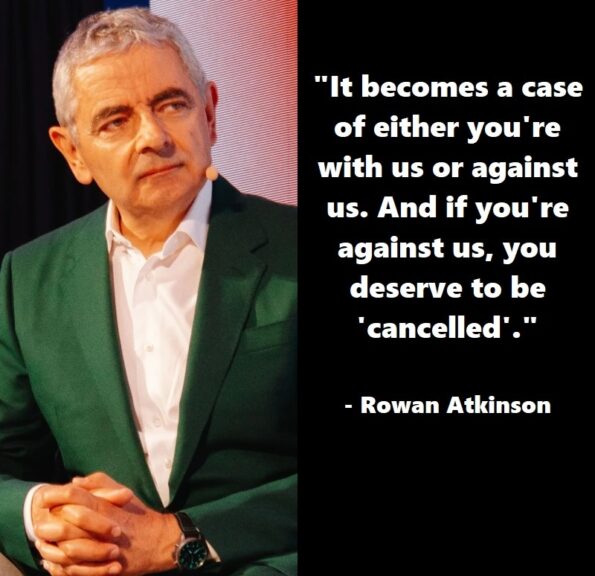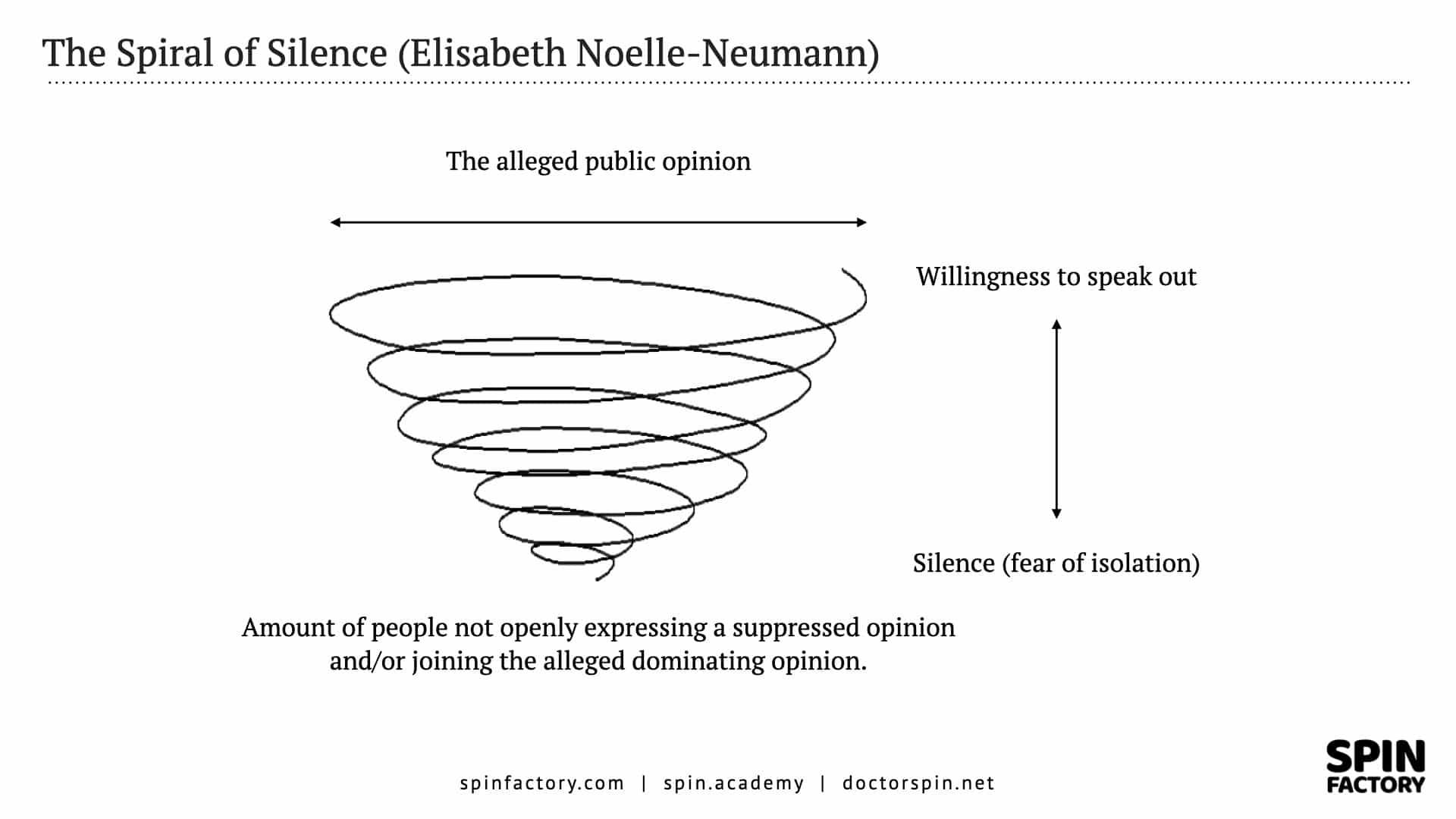Is de-platforming a sound practice?
De-platforming is one of the most aggressive tools that an online moderator can utilise.
For those who value freedom of speech, it seems surreal that any moral being would try to sabotage democratic discussions by mobilising authoritarian lynch mobs.
But here we are.
Here we go:
De-Platforming as a Practice
Online lynch mobs sometimes force online moderators to de-platform individuals, partner organisations, advertisers, collaborators, etc.
“Deplatforming, also known as no-platforming, has been defined as an ‘attempt to boycott a group or individual through removing the platforms (such as speaking venues or websites) used to share information or ideas, or ‘the action or practice of preventing someone holding views regarded as unacceptable or offensive from contributing to a forum or debate, especially by blocking them on a particular website’.”
Source: Wikipedia 1Deplatforming. (2023, January 8). In Wikipedia. https://en.wikipedia.org/wiki/Deplatforming
Is de-platforming a sound practice?
The short answer is no.
From the aggressor’s perspective, you should never adhere to anti-democratic and authoritarian methods of silencing your enemies.
From the moderator’s perspective, you should always adhere to your publicly available policies and never make exceptions based on peer pressure from online lynch mobs.
From the defendant’s perspective, you should never take your freedoms for granted and enjoy your rights humbly and responsibly.
Learn more: De-Platforming as a Practice
Cancel Culture is Evil
What is cancel culture?
Cancel culture = the weaponisation of social outrage to silence, punish, and exile individuals or ideas rather than engaging with them in rational debate.
Cancel culture thrives on public shaming, digital mob justice, and eliminating nuance, reducing complex human beings to single statements or actions — often taken out of context or judged retroactively by evolving moral standards.
“Cancel culture or call-out culture is a phrase contemporary to the late 2010s and early 2020s used to refer to a form of ostracism in which someone is thrust out of social or professional circles — whether it be online, on social media, or in person. Those subject to this ostracism are said to have been ‘cancelled’.”
Source: Wikipedia 2Cancel culture. (2023, January 4). In Wikipedia. https://en.wikipedia.org/wiki/Cancel_culture
Conformity, Oppression, and Stagnation
Unlike traditional accountability, which allows for discussion, learning, and proportional consequences, cancel culture demands immediate and absolute destruction.
Historically, societies that have embraced ideological purges — whether in the form of book burnings, blacklists, or political witch hunts — have not led to progress but instead to oppression and intellectual stagnation. Cancel culture, while often disguised as activism, is fundamentally a modern form of authoritarian control, ensuring conformity not through reason but through intimidation.
In its most extreme form, cancel culture leads to collective amnesia, erasing people, books, films, and even historical figures from public life, as if uncomfortable realities can be scrubbed from existence.
What makes cancel culture particularly insidious is that it operates outside formal institutions, giving unaccountable digital mobs the power to act as judges, juries, and executioners.
The Terror of Being Next
“Cancel culture on social media is a form of public shaming that aims to diffuse public discourse and promote tolerance, but can also be viewed as a form of intolerance against opposing views.”
Source: Rupkatha Journal on Interdisciplinary Studies in Humanities 3Velasco, J. (2020). You are Cancelled: Virtual Collective Consciousness and the Emergence of Cancel Culture as Ideological Purging. Rupkatha Journal on Interdisciplinary Studies in Humanities, 12. … Continue reading
Cancel culture replaces conversation with coercion, creating a world where moral purity is performative and intellectual exploration is replaced by ideological conformity.
A society ruled by the fear of cancellation is not a free society — it is a social panopticon in which people are not guided by moral conviction but by the terror of being next.
It creates an atmosphere of fear (i.e. the spiral of silence), where people are afraid to express dissenting opinions, ask difficult questions, or challenge prevailing dogmas. This stifles creativity, intellectual diversity, and essential human interaction, as individuals constantly self-censor to avoid social annihilation.

How To Navigate Cancel Culture
The culture war with de-platforming, cancel culture, online lynch mobs, woke journalism, populism, fake news, and moral slacktivism are fast becoming our biggest challenges as PR professionals.
Here’s how to navigate cancel culture:
Learn more: Cancel Culture is Evil
The Spiral of Silence Theory
Elisabeth Noelle-Neumann’s (1916 – 2010) well-documented theory on the spiral of silence (1974) explains why the fear of isolation due to peer exclusion will pressure publics to silence their opinions.

The theory was developed in the late 1970s in West Germany, partly in response to Noelle-Neumann’s observations of how public opinion seemed to shift during the Nazi régime and post-war Germany.
The spiral of silence theory is based on the idea that people fear social isolation. This fear influences their willingness to express their opinions, especially if they believe these opinions are in the minority.
Rather than risking social isolation, many choose silence over expressing their opinions.
As the dominant coalition stands unopposed, they push the confines of what’s acceptable down a narrower and narrower funnel, the so-called opinion corridor). 4Opinion corridor. (2023, April 8). In Wikipedia. https://en.wikipedia.org/wiki/Opinion_corridor
Noelle-Neumann emphasised the media’s role in shaping public perception of what opinions are dominant or popular, thus influencing the spiral of silence.
Populism and Cancel Culture
The mechanisms behind Elisabeth Noelle Neumann’s spiral of silence theory could fuel destructive societal phenomena like populism and cancel culture:
In both cases, the spiral of silence contributes to a polarised environment. Views become dominant not necessarily because they are more popular but because opposing views are not expressed due to fear of social isolation or repercussions.
Learn more: The Spiral of Silence

THANKS FOR READING.
Need PR help? Hire me here.

Annotations
| 1 | Deplatforming. (2023, January 8). In Wikipedia. https://en.wikipedia.org/wiki/Deplatforming |
|---|---|
| 2 | Cancel culture. (2023, January 4). In Wikipedia. https://en.wikipedia.org/wiki/Cancel_culture |
| 3 | Velasco, J. (2020). You are Cancelled: Virtual Collective Consciousness and the Emergence of Cancel Culture as Ideological Purging. Rupkatha Journal on Interdisciplinary Studies in Humanities, 12. https://doi.org/10.21659/rupkatha.v12n5.rioc1s21n2 |
| 4 | Opinion corridor. (2023, April 8). In Wikipedia. https://en.wikipedia.org/wiki/Opinion_corridor |
| 5 | Silfwer, J. (2018, August 6). How To Fight Populism. Doctor Spin | The PR Blog. https://doctorspin.net/how-to-fight-populism/ |
| 6 | Silfwer, J. (2020, August 24). Cancel Culture is Evil. Doctor Spin | The PR Blog. https://doctorspin.net/cancel-culture/ |



